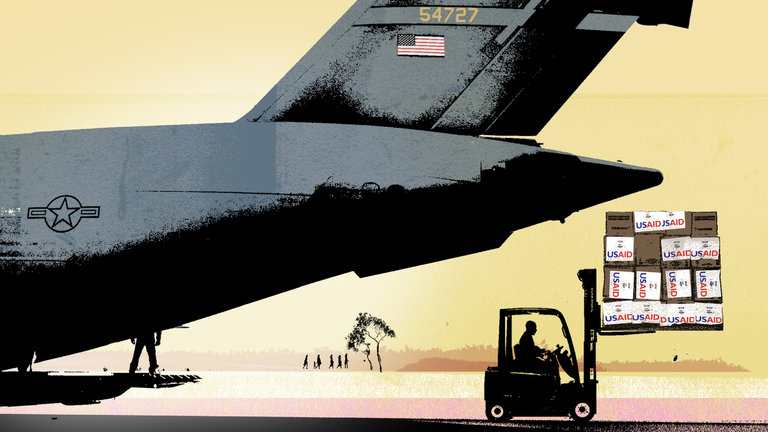The suffering today in northern Uganda and South Sudan should move even the most hardhearted among us.
As members of the Senate Foreign Relations Committee, we often are confronted with the question of how the United States should respond to such crises. We also have the opportunity to visit countries near and far on behalf of the American people to assess the effectiveness of programs. Yet in our travels around the world, neither of us had experienced anything like we did when we entered the Bidi Bidi refugee camp in Uganda last month.
Bidi Bidi became the largest refugee camp in the world in early April. It shelters more than 270,000 people who have fled famine in war-torn South Sudan. Each day, roughly 2,800 more refugees arrive in the country.
When many Americans think of famine, they might picture parched fields or dried-up riverbeds caused by drought. But most famines are not natural disasters; they are man-made, the result of war and violence. The fighting in South Sudan, and the ripple of misery it has generated into surrounding countries, are no exception.
Since late 2013, the civil war in South Sudan has killed more than 100,000 people and displaced nearly a third of the country’s population. One report estimates that more than 40 percent of the population faces “severe, life-threatening” hunger, including millions of children. In some cases, warring parties — including the government itself — are deliberately blocking access to aid as a tactic in the conflict.
It is hard to describe the severity of what we witnessed at Bidi Bidi. We spoke with women and children forced from their homes, in dire need of food, water and shelter. Some had been raped on the journey to Bidi Bidi.
Many mothers and grandmothers had walked for more than two weeks hoping only to find a better life for their children and grandchildren. They clung to cups of cornmeal porridge, not sure if the next ration might be smaller, or if it would exist at all.
This humanitarian crisis is not limited to South Sudan. More than 20 million people in Nigeria, Somalia, South Sudan and Yemen are at risk of starvation, the United Nations says.
The United States contributes at least a third of food aid dollars spent globally, but we cannot tackle this challenge alone. In addition to using current resources more efficiently, we must also exert American leadership and call on other countries to step up their efforts by donating desperately needed resources to avert further suffering, violence and instability.
Suffering of the scale and intensity that we saw is not just a stain on our collective conscience — it can also be a driver of violence and instability that can affect the rest of the world.
Of course, there are limits to what even the world’s richest country can spend on foreign aid. But we can find ways to spend more efficiently, to get more out of each dollar.
In Congress, we are leading efforts to reform how the United States delivers food assistance, which totals more than $2 billion every year. A bill we sponsored, the Global Food Security Act, was signed into law last summer; it permanently authorized the United States Agency for International Development’s emergency food aid program, which provides nearly half of all American food aid.
The agency’s program delivers aid more efficiently and effectively than when it is processed by the Department of Agriculture, which processes some food aid but is encumbered by decades of redundant requirements that result in delays, unnecessary costs and often an inability to reach those who need help most.
Taxpayers deserve to know that the way we deliver food aid is as efficient as the American people are generous. That is why we’ve written another bill, the Food for Peace Reform Act, which would eliminate decades-old regulations that require food aid to be grown in the United States — often thousands of miles away from the people who need it — and shipped on American-flagged vessels. We estimate these reforms could free up as much as $500 million annually and allow us to reach five million to eight million more people with food in less time.
As a result of a civil war for which they bear no responsibility, far too many South Sudanese, including those we met in Bidi Bidi, have known far too much violence, far too much suffering and far too little opportunity. Following our visit to Uganda, we are rededicating ourselves to common-sense reforms that will feed more people and save more lives without asking more of the American people.
The New York Times
